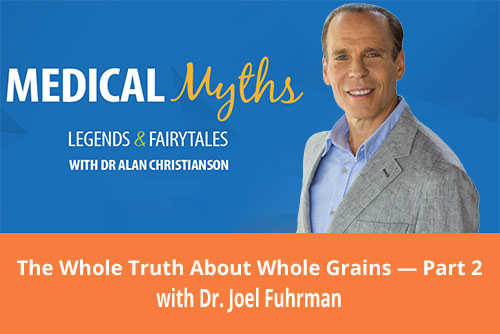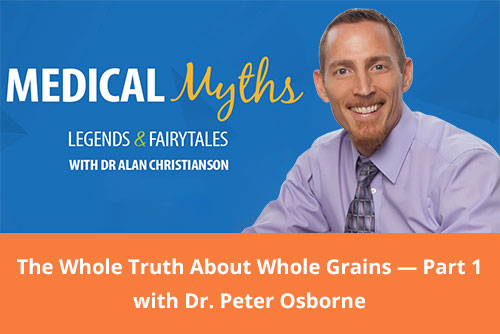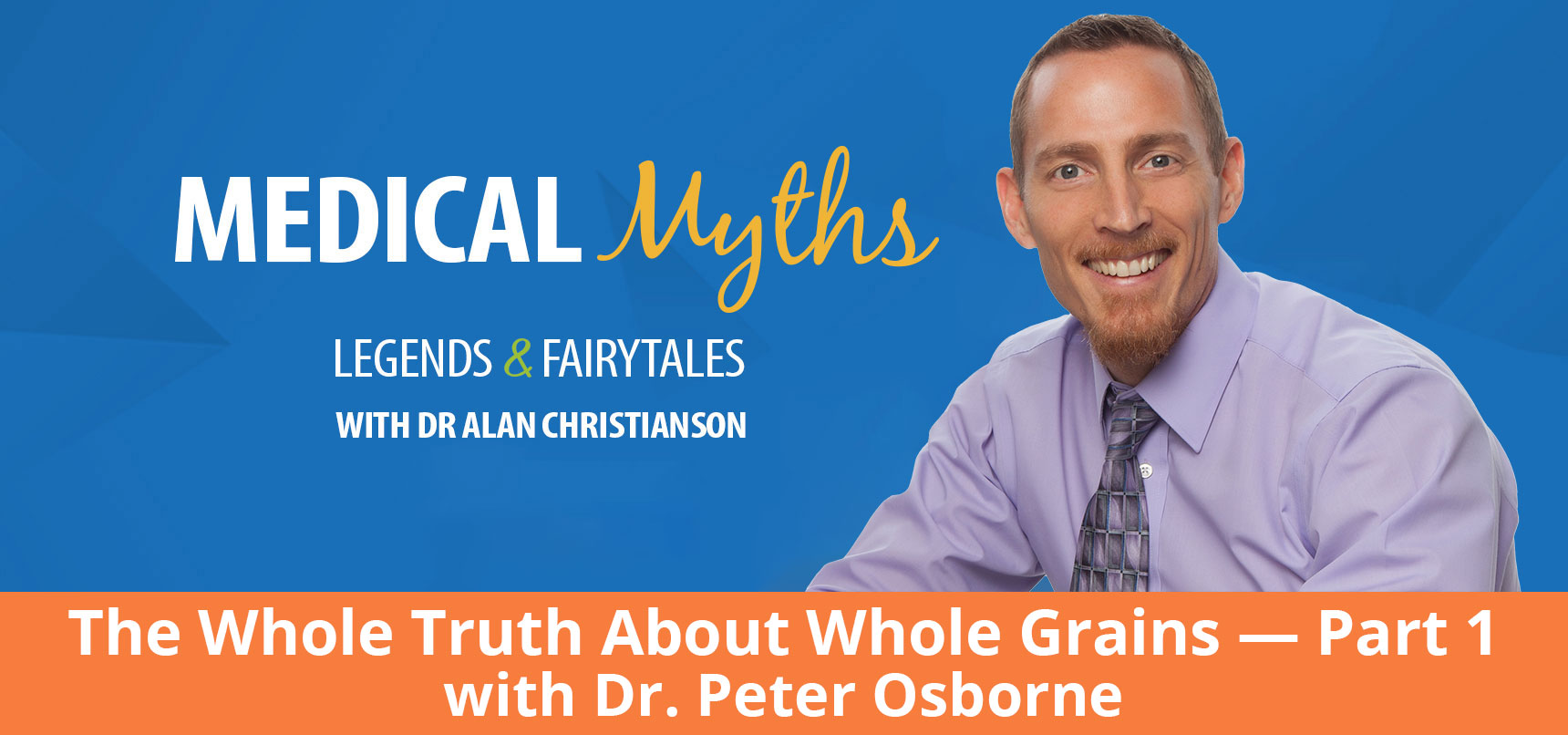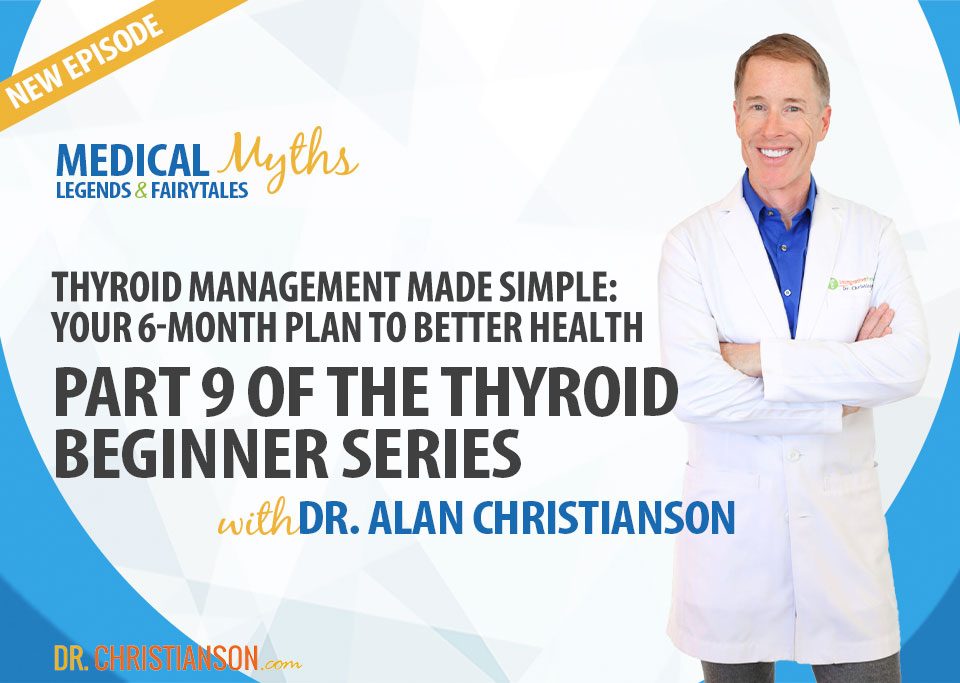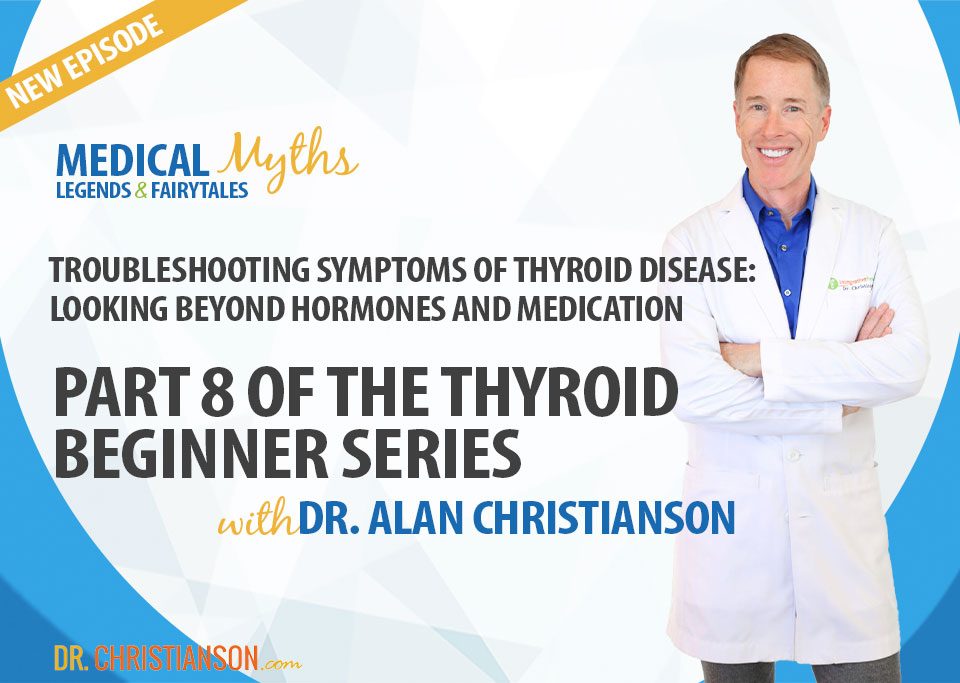Podcast – The Whole Truth About Whole Grains – Part 1 with Dr. Peter Osborne
Description: Between the latest online fads and the crazy media headlines, it’s easier than ever to get confused about your health. If you want to make better decisions about your health today so you can feel better and live longer, you’ve come to the right place.
Today is the first episode of a three part series that examines the effect of grains on health. I’m joined today by the Gluten-Free Warrior — Dr. Peter Osborne, the founder of the Gluten-Free Society who works to help people with autoimmune and degenerative diseases. He shares some of the experiences and citations that have led him to work so passionately to educate people about the effect of grains on our overall health. Dr. Osborne has helped over 5,000 patients regain overall health and wellness with a grain-free diet, and his approach to healing is focused on individuals with auto-immune diseases.
If you’ve ever suspected that you might have gluten intolerance but aren’t sure if you have Celiac disease, if you’re wondering what environmental factors might be affecting your health, or if you are looking for ways to eliminate painful reactions to gluten, you need to listen to this conversation to help you decide which steps you need to take next.
Key Takeaways:
[1:10] Today’s topic is grains — are they harmful to people who don’t have Celiac’s disease?
[2:00] Introducing Dr. Peter Osborne, who shares his overall thoughts on the effects of grains on human health, the quality of studies that have been conducted about grains, and the importance of identifying autoimmune diseases when healing for chronic disease.
[5:48] Dr. Osborne reacts to the statement that reduced-grain diets contribute to worse health outcomes, including cardiovascular death, and explains how the quality of the diet is a greater factor than the gluten intake itself.
[9:52] The correlation between a grain-free diet and autoimmune disease, and a snapshot of the overall history and changing health factors that have an influence on a person’s weakened health status.
[15:00] The danger of not controlling for variables in a patient, the importance of believing that you can feel better again, and the value of overall body-fuel balance.
[18:10] How can you tell if you have non-Celiac gluten sensitivity, and what can you do about it? Dr. Osborne suggests starting with diet change and supporting nutritional deficit.
[22:30] Understanding the prevalence of non-Celiac gluten sensitivity and the environmental factors that accelerate it including exposure to pesticides, plastics, antibiotics, chemicals and medications.
[27:04] Should all people with a gluten sensitivity be tested for Celiac’s disease? Dr. Osborne says that it is not necessary, and he explains why.
[29:40] What are the pitfalls of making dietary changes that are not accurate relative to the symptoms that are actually present? A look at the variables that affect overall health regardless of gluten-sensitivity.
[37:04] If variables such as molds, pesticides and hybridization are present, it becomes increasingly difficult to separate individual aspects of the diet. Here’s what to do about it.
[39:24] A list of conditions for non-Celiac gluten sensitivities that are actually caused by gluten and the next steps you should take to begin healing.
[43:41] Dr. Osborne’s number one tip for enhancing overall health starts with self observation — pay attention to how your body responds to activity, exercise and food before you decide that your condition is irreversible.
[47:14] Do you have a topic you’d like me to cover? Contact me on Facebook or Instagram using #medicalmyths.
To learn more:
No Grain, No Pain: A 30-Day Diet for Eliminating the Root of Chronic Pain by Dr. Peter Osborne
Article References:
- Arbuckle MR, James JA, Kohlhase KF, et al. Development of anti-dsDNA auto-antibodies prior to clinical diagnosis of systemic lupus erythematosus. Scand J Immunol. 2001;54(1–2):211–219. [PubMed] [Google Scholar]
- Arbuckle MR, McClain MT, Rubertone MV, et al. Development of autoantibodies before the clinical onset of systemic lupus erythematosus. N Engl J Med. 2003;349(16):1526–1533. [PubMed] [Google Scholar]
- Arslan S, Erkut B, Ates A, et al. Pseudoaneurysm of left ventricular following left ventricular apical venting. Clin Res Cardiol. 2009;98(4):280–282. [PubMed] [Google Scholar]
- Majka DS, Deane KD, Parrish LA, et al. Duration of preclinical rheumatoid arthritis-related autoantibody positivity increases in subjects with older age at time of disease diagnosis. Ann Rheum Dis. 2008;67(6):801–807. [PMC free article] [PubMed] [Google Scholar]
- Majka DS, Holers VM. Can we accurately predict the development of rheumatoid arthritis in the preclinical phase? Arthritis Rheum. 2003;48(10):2701–2705. [PubMed] [Google Scholar]
- Rantapaa-Dahlqvist S, de Jong BA, Berglin E, et al. Antibodies against cyclic citrullinated peptide and IgA rheumatoid factor predict the development of rheumatoid arthritis. Arthritis Rheum. 2003;48(10):2741–2749. [PubMed] [Google Scholar]
- Eriksson C, Kokkonen H, Johansson M, et al. Autoantibodies predate the onset of systemic lupus erythematosus in northern Sweden. Arthritis Res Ther. 2011;13(1):R30. [PMC free article] [PubMed] [Google Scholar]
Tweetables:
“Anytime we see a society choose it’s staple food forms from highly processed foods we see an increase in chronic degenerative disease.” — Peter Osborne
“I’ve not yet met a case of autoimmune disease in an individual who didn’t have a vast improvement when going grain-free.” — Peter Osborne
“There’s a growing body of evidence that shows that people can react to gluten in more ways than one. Non-celiac gluten sensitivity is the wheelhouse of all the ways someone might react to gluten.” — Peter Osborne
“Not very many people are aware that non-celiac gluten sensitivity is an array of different diseases that have been shown in research to be validated. Gluten can cause these sensitivities.” — Peter Osborne



